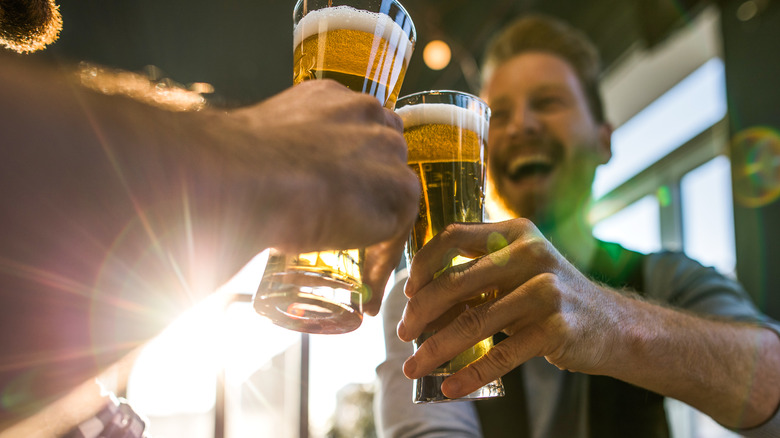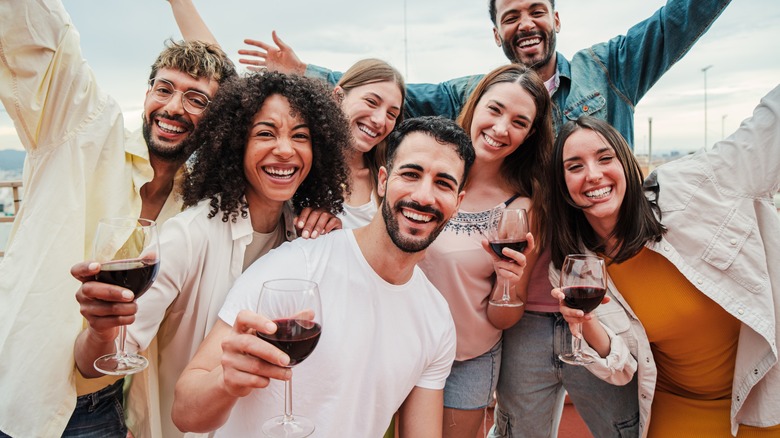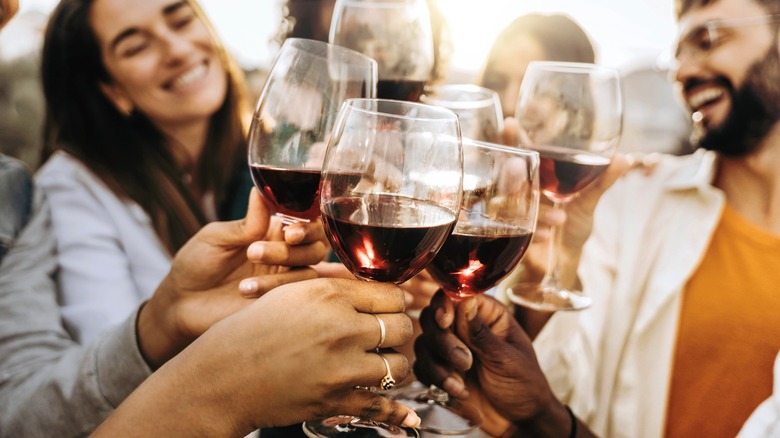Cheers! Santé! Prost! Toasting in Europe comes with its own set of etiquette, rules, and traditions that are deeply ingrained in local culture. And in between the clinking glasses and chorus of well-wishes, there’s one more toast-ready custom that you might not have heard of. Oh, and introverts? You might want to start prepping for this one ahead of time — things could get slightly out of your comfort zone.
From Germany to France, locals believe that two people toasting should always — and we mean always — do so while looking directly into each other’s eyes. Is the purpose of the eye contact romantic? Not so much — at least not between the two people clinking glasses (unless they’re on a date, of course!). In fact, the real reason behind the rule is that, if you don’t make eye contact during a cheers, you’ll be cursed with seven years of bad luck (or, in some cases, seven years of bad sex). Talk about a harsh punishment.
How did the tradition originate?

Although there’s no clear sign of where or why the tradition of toasting while maintaining eye contact originated, there are several stories and theories that might shed light as to why it became so popular. For starters, there’s the importance of eye contact as a social gesture. Considered a symbol of confidence and connection, looking someone in the eye while you engage with them has long been seen as a sign of respect. With this in mind, it’s possible that the custom stemmed from that mutual understanding of esteem and trust.
Speaking of trust, another theory about how the custom originated takes things back to Viking culture through the 8th and 11th centuries. According to popular legend, Vikings would supposedly maintain eye contact while toasting to ensure that the other person wasn’t going to wield their weapon and attack mid-sip.
Another theory draws on the Middle Ages, when poisoning was a relatively common practice between enemies. What’s that got to do with eye contact? Well, if someone had poisoned a drink, the culprit would keep a close watch on the glass during the toast to make sure none of the drink (and poison) spilled over and into their own. That said, if both men maintained eye contact instead of focusing on spillage, there was nothing to worry about.
Other European toasting traditions to watch out for

Beyond their lively nightlife scene, Europeans take toasting traditions very seriously. And, believe it or not, prolonged eye contact isn’t the only toasting tradition they take seriously. All the way over in Georgia, for example, toasts go from simple one-off events to serious affairs. Enter: the Tamada — or toastmaster. Tasked with delivering a series of toasts (over 10 in some cases) that celebrate everything from the life of anyone deceased, memorable milestones, or even just to share stories, the role comes with great responsibility.
The Netherlands doesn’t stay behind when it comes to rituals, either. Home to a unique tradition called kopstootje, or little headbutt, the process is simple: Take a tulip-shaped glass filled to the brim with Genever (a traditional liquor similar to gin), lean over the table, and slowly slurp your way through without spilling. Add kopstootje to your list of essential phrases and words before your trip, and you’ll feel like one of the locals in no time.
Lastly, in Hungary, you probably won’t catch anyone toasting at all. Why the hesitance? Legend has it that, when Austria celebrated its victory in the Hungarian Revolution of 1848, the army commemorated the occasion by clinking glasses. As a way to honor their fallen heroes and defy the Austrians, the people of Hungary vowed to never participate in a toast again. Wine lovers looking to hit up the country’s famous Tokaj wine region: You have been warned.

